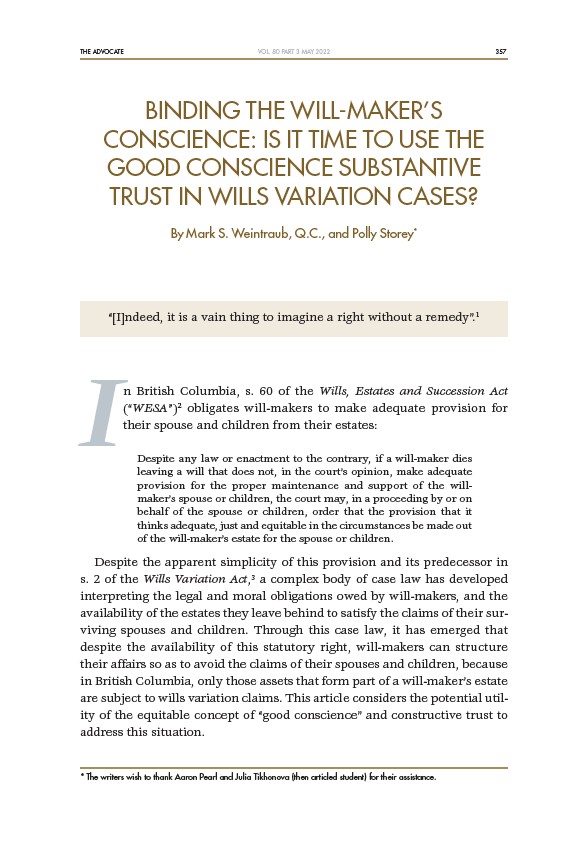
THE ADVOCATE 357
VOL. 80 PART 3 MAY 2022
BINDING THE WILL-MAKER’S
CONSCIENCE: IS IT TIME TO USE THE
GOOD CONSCIENCE SUBSTANTIVE
TRUST IN WILLS VARIATION CASES?
By Mark S. Weintraub, Q.C., and Polly Storey*
“Indeed, it is a vain thing to imagine a right without a remedy”.1
In British Columbia, s. 60 of the Wills, Estates and Succession Act
Despite any law or enactment to the contrary, if a will-maker dies
(“WESA”)2 obligates will-makers to make adequate provision for
their spouse and children from their estates:
leaving a will that does not, in the court’s opinion, make adequate
provision for the proper maintenance and support of the willmaker’s
spouse or children, the court may, in a proceeding by or on
behalf of the spouse or children, order that the provision that it
thinks adequate, just and equitable in the circumstances be made out
of the will-maker’s estate for the spouse or children.
Despite the apparent simplicity of this provision and its predecessor in
s. 2 of the Wills Variation Act,3 a complex body of case law has developed
interpreting the legal and moral obligations owed by will-makers, and the
availability of the estates they leave behind to satisfy the claims of their surviving
spouses and children. Through this case law, it has emerged that
despite the availability of this statutory right, will-makers can structure
their affairs so as to avoid the claims of their spouses and children, because
in British Columbia, only those assets that form part of a will-maker’s estate
are subject to wills variation claims. This article considers the potential utility
of the equitable concept of “good conscience” and constructive trust to
address this situation.
* The writers wish to thank Aaron Pearl and Julia Tikhonova (then articled student) for their assistance.